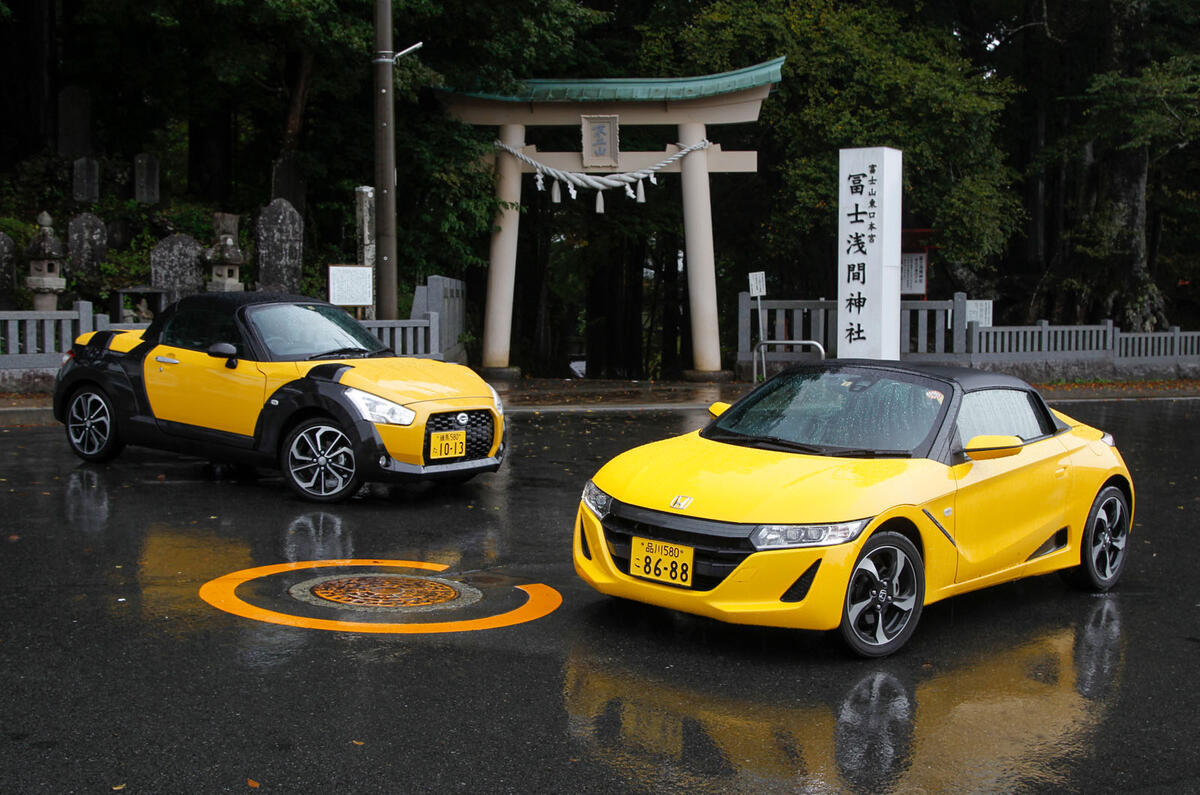European Union president Ursula von der Leyen will work with car industry bosses to develop a new ‘E-car’ category of small affordable cars in a bid to help safeguard the industry.
In July, Stellantis chairman John Elkann and then Renault Group boss Luca de Meo proposed creating a class of small cars with fewer safety regulations that would be cheaper to build and emit fewer lifecycle emissions.
The proposal was loosely based on Japan's kei car class, which accounts for around 40% of the Japanese domestic market.
At this week's Munich motor show, numerous car industry bosses – including new Renault Group chief François Provost, the BMW Group's Oliver Zipse and Stellantis’s Jean-Philippe Imparato – called for urgent action on current EU rules that will ban the sale of new ICE cars by 2035. They argue that this risks damaging the European car industry, which is facing a threat from aggressive Chinese rivals.
Zipse and Imparato both suggested plans for evaluating the lifecycle CO2 emissions of vehicles, rather than simply measuring emissions at the tailpipe – a move that would give car firms more freedom to use a variety of different powertrains while still reducing CO2 emissions.
In her annual State of the Union address, von der Leyen described the European car industry as “a pillar of our economy and industry”, acknowledging that “millions of jobs depend on it.”
Von der Leyen noted that the EU had already added flexibility to the 2025 CO2 targets that car firms must hit and added: “With respect for technology neutrality, we are now preparing the 2035 review.”
The German politician also gave her support for the proposed ‘E-car’ class, saying: “Millions of Europeans want to buy affordable European cars, so we should also invest in small, affordable vehicles, both for the European market but also to meet the surge in global demand. This is why we will propose to work with industry on a new small affordable cars initiative.
“I believe Europe should have its own E-car. E for environmental – clean, efficient and lightweight. E for economical – affordable for people. E for European – built here in Europe with European supply chains. Because we cannot let China and others conquer this market."
It isn't yet clear which powertrain types will be permitted in the new E-car class. However, von der Leyen said: “No matter what, the future is electric, and Europe will be part of it. The future of cars – and the cars of the future – must be made in Europe.”








Join the debate
Add your comment
I remember when the EU gave VW lots of money and support to build a new range of clean diesel engines, VW spent it on finding ways to cheat on emissions and dieselgate was the outcome, that cost the industry billions, from which it has never recovered, and resulted in this now pathetic push for the banning of ICE powered vehicles.
Exciting, different shapes are possible to deal with the 'cheap econobox' image. Small can be even more interesting if it manages to accomplish what oversized SUVs cannot: self-driving. Too long carmakers have been pursuing big-bigger-biggest, convinced that this is the only way to make profitable cars.
Excellent idea that's about 20 years too late, but better late than never. The EU (and hopefully UK government) should look at why Kei cars are so popular, and how to adapt those rules to here.